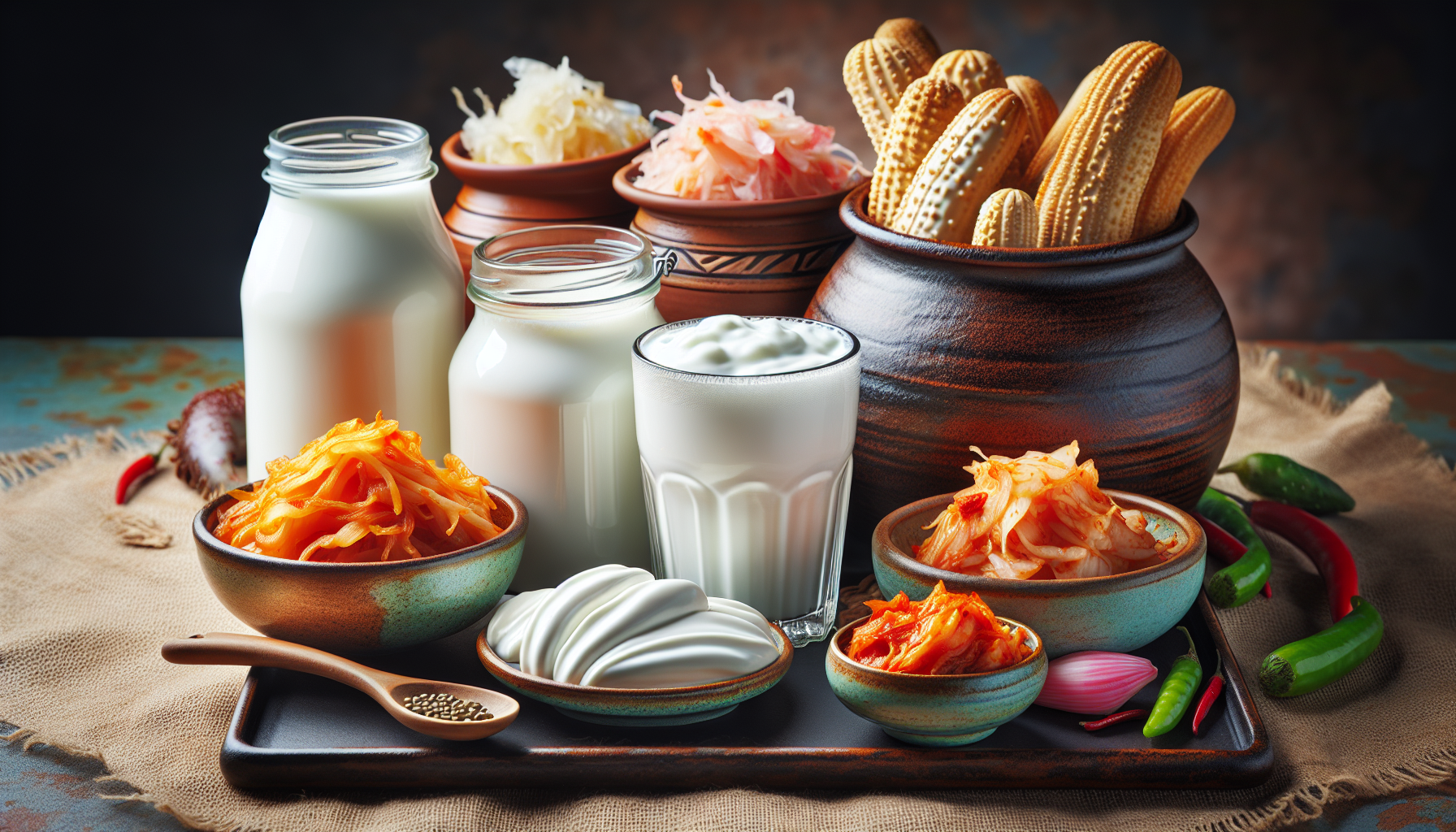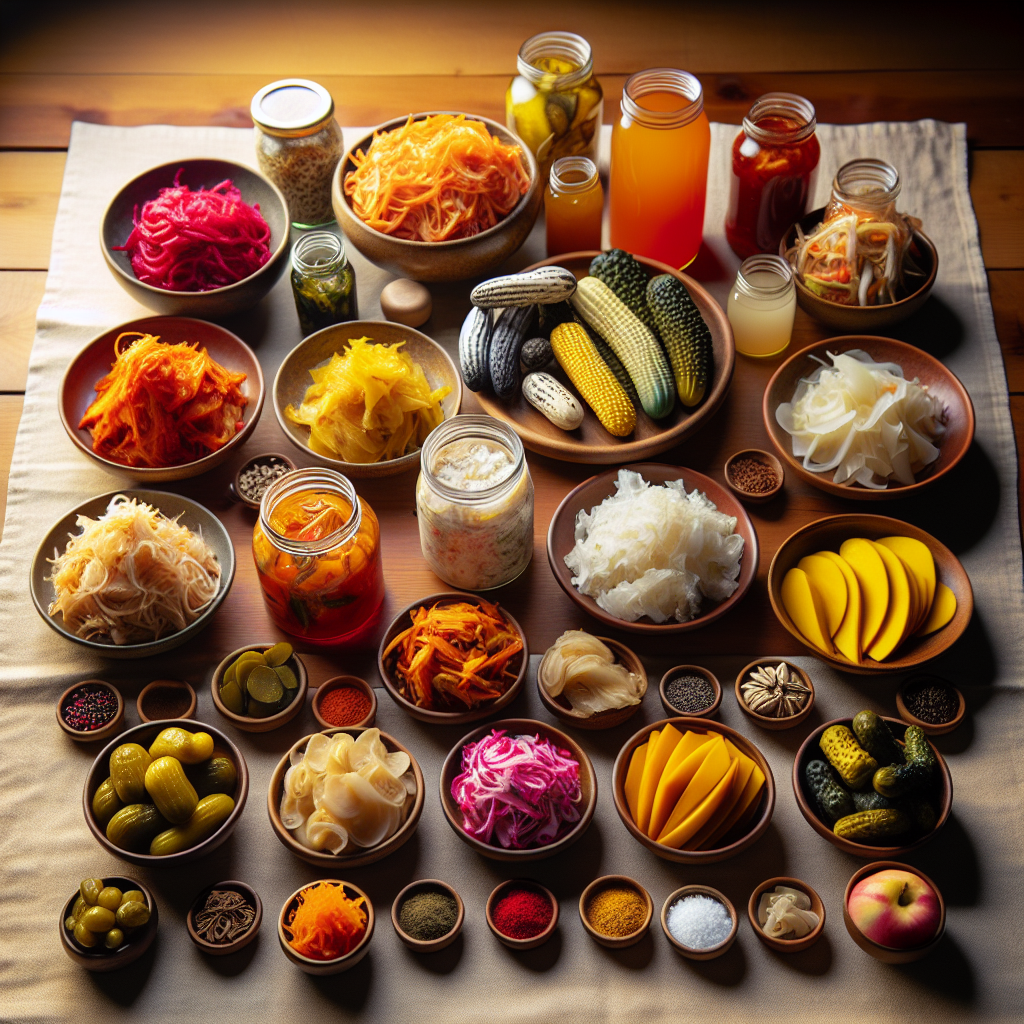Probiotics have garnered a significant amount of attention in the realm of health and wellness, and for good reason. These beneficial bacteria are not only crucial for maintaining a balanced gut microbiome but also play an integral role in overall health. The digestive system is often referred to as the body’s second brain, and supporting it with the right nutrients, including probiotics, is essential for both physical and mental well-being.
The Role of Probiotics in Digestive Health
Probiotics are live microorganisms, predominantly bacteria, which when administered in adequate amounts, confer a health benefit on the host. They are naturally found in the body but can also be bolstered by certain foods and supplements. These microorganisms contribute to a variety of bodily functions, including nutrient absorption, production of vitamins, and immune system defense.
A robust digestive system is underpinned by a delicate balance of these gut bacteria. Factors such as diet, stress, and antibiotic use can disrupt this equilibrium, potentially leading to digestive disorders. Incorporating probiotic foods into one’s diet is a natural strategy to restore balance and promote digestive health. To delve deeper into the intricacies of the digestive system and its needs, the article "Digestive Health" on Avix Health provides comprehensive insights.
Probiotic Foods and Their Benefits
Probiotic foods are those that are either fermented or contain live cultures of beneficial bacteria. Some of the most common and accessible probiotic foods include:
- Yogurt: Made from fermented milk, yogurt is one of the best sources of probiotics. It’s important to choose yogurt with live cultures and without added sugar for maximum benefits.
- Kefir: A fermented milk drink similar to yogurt but with a thinner consistency. It contains a wider variety of bacterial cultures.
- Sauerkraut: Fermented cabbage that not only supplies probiotics but is also rich in vitamins C and K.
- Kimchi: A spicy Korean side dish made from fermented vegetables, providing a unique blend of probiotics and nutrients.
- Miso: A Japanese seasoning produced by fermenting soybeans with salt and koji. It adds a rich flavor and probiotics to soups and other dishes.
- Tempeh: Fermented soybeans formed into a patty. Tempeh is a great source of both probiotics and protein.
Incorporating these foods into your diet can support the growth of beneficial gut bacteria, leading to improved digestion and absorption of nutrients. For those interested in plant-based diets, the benefits they can offer in terms of digestive health are explored in great detail in "Benefits of a Plant-Based Diet for Digestive Health" on Avix Health.
Benefits of a Plant-Based Diet for Digestive Health
Probiotics and Mental Wellbeing
The gut-brain axis is a communication network that links the central nervous system to the digestive tract. Probiotics can influence this connection, potentially impacting mood and cognitive functions. Research suggests that a healthy gut microbiota may play a role in reducing anxiety and depression symptoms, enhancing the importance of gut health in achieving overall mental wellness. A closer look at this relationship is provided in "Exploring the Link Between Gut Health and Mental Wellbeing."
Exploring the Link Between Gut Health and Mental Wellbeing
Choosing the Right Probiotic Foods
When selecting probiotic foods, it is essential to look for products that contain live and active cultures. The label should specify the types of bacteria present and their concentration. Generally, a higher number of colony-forming units (CFUs) indicates a more potent probiotic product.
It is also crucial to consider the diversity of bacteria strains, as different strains offer various health benefits. For example, Lactobacillus and Bifidobacterium are two common genera of bacteria with numerous species and strains that are beneficial to gut health.
External High-Quality Resources on Probiotics
To expand your understanding of probiotics and their impact on health, here are some niche and specific resources:
- International Scientific Association for Probiotics and Prebiotics (ISAPP) offers a wealth of information on the latest research and guidelines surrounding probiotics and prebiotics.
- The American Gastroenterological Association provides patient-centered resources and scientific insights into digestive health and the role of the microbiome.
- Global Probiotics Council is dedicated to raising awareness about the health benefits of probiotics and supporting scientific research in the field.
- The Gut Health Foundation focuses on gut health education and the benefits of probiotics in maintaining a healthy digestive system.
- The World Gastroenterology Organisation offers a global perspective on digestive health and the influence of diet, including probiotic foods, on gut function.
How to Incorporate Probiotics into Your Diet
To naturally improve gut health through diet, start by gradually adding probiotic-rich foods to your meals. Here are some tips:
- Begin your day with a probiotic yogurt or kefir smoothie.
- Include fermented vegetables like sauerkraut or kimchi in your salads or as side dishes.
- Use miso paste to make soups or dressings, adding a savory taste and healthy bacteria to your dishes.
- Swap regular soy products with tempeh for a probiotic boost in your recipes.
It’s also important to support probiotics with a diet rich in prebiotics, which are fibers that feed the beneficial bacteria in the gut. Foods high in prebiotics include garlic, onions, bananas, and whole grains.
Conclusion
The quest for improved gut health can be greatly supported by the regular consumption of probiotic foods. These foods not only aid in maintaining a balanced microbiome but also contribute to the overall well-being of both body and mind. For those seeking to enhance their digestive function through hydration, "How Proper Hydration Enhances Digestive Function" on Avix Health provides valuable guidance.
How Proper Hydration Enhances Digestive Function
Remember, while probiotics can offer numerous health benefits, they should be part of a comprehensive approach to wellness, including a balanced diet, regular exercise, and adequate sleep. Consult with a healthcare professional before making significant changes to your diet, especially if you have existing health conditions.
Embracing a diet rich in probiotic foods can pave the way to a healthier, more vibrant life. By nurturing your digestive system with these beneficial bacteria, you’re taking an essential step toward holistic health where a happy gut means a happy you.



